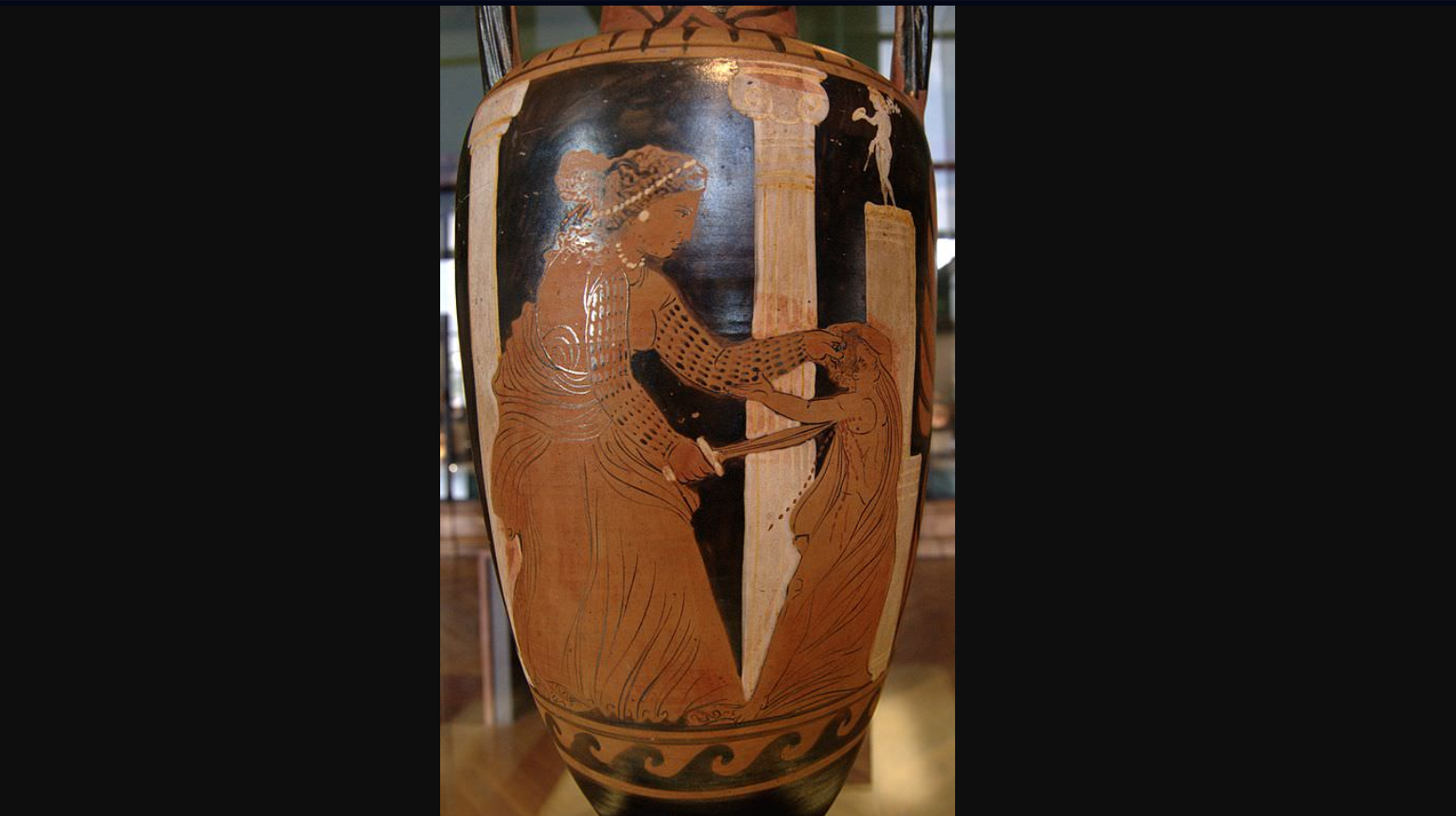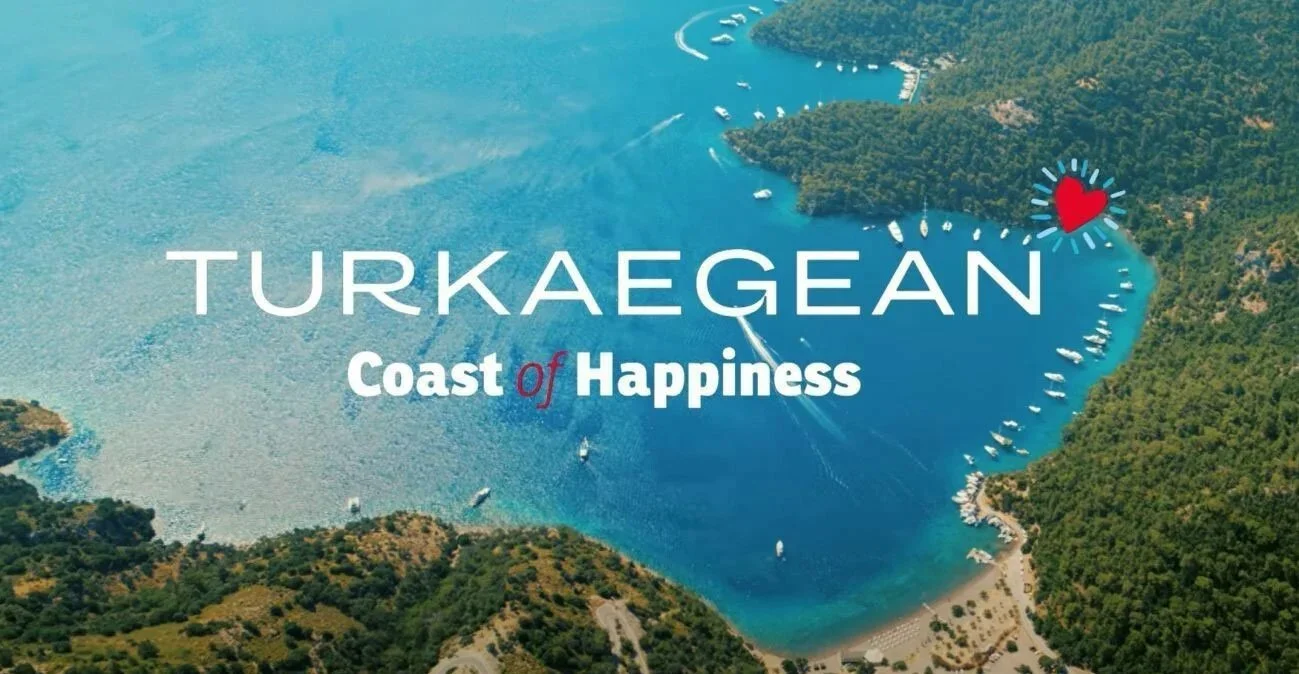"How is it that humans can land on the moon, but we still don't have a machine to carry groceries up the stairs?" a middle-aged woman from Ano Syros, known locally as an "Anosyriani," remarks as she and her husband pause under a canopy, weighed down by shopping bags. "Is that really the issue, or is it that we have to trek all the way to Ermoupoli for our daily essentials?" he replies with quiet resolve.
As we strolled through the winding streets of Ano Syros with architect and NTUA professor Iosif Stefanou, we overheard the couple. "He has a point. When I was a child here after the war, the place was alive with kids and shops, self-sufficient. Now it’s just bars. In the summer, it’s packed with tourists; in the winter, it’s a ghost town," Stefanou reflects on the windswept hill where the first Catholic community formed in the 13th century, long before Ermoupoli rose in the 19th century.
Educated in France, Stefanou has long been dedicated to preserving the traditional Cycladic architecture of Ano Syros and Ermoupoli. He was instrumental in securing protective state decrees in the 1970s that remain in effect today. This achievement came at a personal cost: "Setting rules early on didn’t sit well with my compatriots. Like most Greeks, they wanted free rein with their building projects. My father would frequently say, 'What have you done to them? I get into arguments at the coffee shop because they blame you. Explain it to me at least so I can understand.' He died feeling this way. It was a victory for preservation, but a Pyrrhic one. We maintained the medieval architecture of Ano Syros at a decent level, but now the community itself is in danger," he laments.
"Once, this place was a model of communal life. A mother would rush to her neighbor’s house at the sound of a crying baby. Now, most homes are shut for most of the year, bought up by foreigners or Athenians. Thankfully, most respected and preserved these homes. Meanwhile, locals often focus on quick profit, which is why only bars have sprung up recently. They don’t realize they’re sawing off the branch they’re sitting on. They look at Mykonos with envy but fail to learn from its current state," Stefanou adds. I can’t help but think of the legendary rembetiko musician Markos Vamvakaris; if he walked around his birthplace today, he might suffer a heart attack, as his song "Frangosyriani" suggests. The working-class tavernas serving retsina have become cocktail bars. Yet, each time I start to despair during this three-day journey through the lesser-known parts of Syros, something magical restores my hope.
One such moment occurs during our next appointment with 15 children, their bouzoukis and guitars in hand, waiting for us further down the whitewashed alleys near the statue of Vamvakaris. They are students at the Great School of Markos, established in 2017 by composer and conductor Stavros Xarchakos and other visionaries. "We fight tooth and nail to keep rembetiko, folk, and Byzantine traditions alive," says Aristos Vamvakousis, a professional bouzouki player and teacher at the school. The Ermoupoli-based school has 100 students, 40 of whom study music while the rest focus on visual arts and drawing. "We’re fighting, and as long as these efforts continue, Syros won’t become just another tourist trap. Besides us, there are many theater, dance, and sports groups, all striving to offer variety and stimulation during the non-tourist season. That’s what keeps us alive in winter," Vamvakousis asserts.
"The irony, of course, is that new musicians are graduating from the school who love music but have nowhere to play in Syros. And it’s not just the rembetiko venues that have closed. After October, it’s hard to even find a taverna open for a meal," Vamvakousis notes. "This is because, post-pandemic, many catering businesses are owned by outsiders who don’t care about staying open during the off-season. But even in summer, it’s hard to find traditional dishes like horiatiki or meatballs. The new upscale restaurants are beyond our means. In the past, you could dine for 17 euros in a small taverna where the owner spent all day in the kitchen. Now, a cocktail that takes a minute to prepare costs nearly the same. What do you think a businessman would choose? It’s funny, but we find ourselves longing for the Syros of just five years ago," Vamvakousis adds. Sitting beside him is 54-year-old Lefteris Zannes, the oldest student at the school and a real estate agent who returned to his homeland after living in Athens.
"We’ve had quite a few permanent residents move here from abroad and Athens, and they’ve integrated well. They’re drawn to Syros because we have an airport, daily ferries, and a hospital. It’s a safe place; we leave our keys in the door, and the 20,000 residents keep the island alive year-round. Syros also has history and culture, which acts as a shield, attracting more discerning visitors rather than those just looking for a vacation home. However, there’s been a shift across the Cyclades recently, and if it’s not stopped, things will fall apart. What’s happening here mirrors what happened on Paros, where clients now want to sell their properties and find something in Syros because it’s still quieter here. But we’re at a tipping point. There used to be only a few Airbnb listings here; now there are plenty. Rents have skyrocketed, and teachers, firefighters, and students can’t find a place to stay," Zannes says. I ask if, as a real estate agent, he feels partly responsible. "Yes, I do, and I accept my share of the blame. I’m even considering changing careers. For now, at least, I try to ensure that those who buy homes are good people," he replies.
As we continue our journey, we find that some parts of Syros have undergone extensive development, evident as we visit the island’s old fishing village, Kini. Once lined with humble fish tavernas, Kini is now home to upscale establishments like Allou Yialou, owned and operated by Syros native Lina Fournistaki. She arrives exhausted, having just prepared to open not only this restaurant but also a Mykonos-style venue, ONO, in Agathopes. Fournistaki entered the restaurant business young, as her aunt ran a renowned taverna in the once-untouched neighboring bay of Delfini: "I grew up spending summers there. It was different back then. People came in with wet swimsuits, and shipowners sat alongside backpackers. Now, even budget-conscious customers want to feel like royalty on vacation, expecting refined cuisine and ambiance. For instance, we pay for music rights, use high-quality chairs, dishes, glasses, and tablecloths, and serve top-quality ingredients. To stay financially viable during the months we’re open, we need high turnover. They ask me why I don’t serve stuffed vegetables. But if I charged 18 euros for stuffed vegetables, customers would throw them at my head, and rightly so. So, we focus on fish and meat. We follow the lead of luxury-seeking customers because they’re the ones who support us. Should we turn our backs on them? Or should we keep a taverna like it was in the 80s but charge 2024 prices?"
The situation is quite different in an alley in Ermoupoli where the women’s cooperative of Ano Syros, Kastri, is located. Here, you find reasonably priced dishes like soutzoukakia, legumes, and other home-cooked meals. Founded in 1999, the cooperative has given financial independence to many Anosyrianes who lovingly prepare meals that sell out quickly. Even tourists queue up for these dishes. But on the island, there’s a growing tension between traditional foods and trendy options like ceviche, with the latter gaining ground. Wealthy newcomers have invested heavily in restoring mansions and revitalizing Ermoupoli. They, in turn, want to dine at expensive restaurants, stay in luxury hotels, and bring their yachts. What was once a destination for average Greek families may soon be out of their reach. However, Syros has a defense against overtourism: its economy isn’t solely dependent on visitors. As the capital of the Cyclades, it houses all state services, employs numerous public servants, and is home to the historic Neorion Shipyards, founded in 1861.
Neorion, one of Greece’s oldest enterprises, has had its share of ups and downs, impacting the island’s economy. Since 2018, it has been under the ownership of Greek-American company ONEX, focusing on ship repairs, including the environmentally taxing process of sandblasting. Over the past six years, this has divided residents: on one side are the 400 regular employees and their families, who strongly support the shipyard; on the other, a dynamic group of citizens who formed the Syros Environmental Quality Observatory, demanding that the shipyard operate without harming the environment. The company has filed lawsuits against the observatory, and tensions are high. "If you spend a few days in Ermoupoli, you’ll think there’s a giant dentist in the sky drilling away, with constant noise, and balconies and boats covered daily in dust that’s definitely not harmless—we’re all breathing it in," a local resident says.
Inside the Neorion Shipyard, marketing manager Constantinos Kyriazis and trade union leader Yiannis Dobrinias walk me through the improvements made in recent years: "We’ve invested millions of euros in upgrading and cleaning the facilities, and we’ve halted the highly controversial sandblasting process until we receive our environmental license for the new year. We understand the residents’ concerns and are in regular discussions with them. But let’s not forget the shipyard’s contributions to the local economy. We may have focused on repairs so far, but we’re ready to build ships again. We recently completed the first-ever boat manufactured with a metal 3D printer, and we’re negotiating new orders," Kyriazis says. He and Dobrinias have worked at Neorion for 30 and 40 years, respectively, and say they’re optimistic about the future.
"Do you know how many people left Syros during the crisis? The shipyard is not just about the shipowners; it’s about all of us—the baker, the dry cleaner, the delivery driver, everyone who relies on this economy," Dobrinias says. "We’ve had tough times, including unpaid wages for 18 months before the change in ownership. If ONEX hadn’t stepped in, Syros would be a different place now. We were the last industry in the country still hiring unskilled workers. Now they’ll need to leave again. Besides, this discussion about an 'industry-free' Syros is nonsensical. Syros isn’t a tourist island; its economy was never based solely on tourism. Unlike other Cycladic islands, we’ve always had a stable economy."
However, not everyone sees it that way. "We live in the Cyclades, where ships pass through the straits. The residents never expected to breathe ship exhaust and dust," says Nikos Sideris, a local doctor and member of the Syros Environmental Quality Observatory. The observatory has gathered signatures, conducted studies, and collaborated with the University of Athens on air quality measurements. They’ve even taken ONEX to court for labor law violations: "There’s a lack of transparency. No one’s sure what happened to the 400 million euros the shipyard received, including 160 million in public funding. Where’s the cleanup? The city needs to rethink its economic strategy because it risks becoming either an industrial zone or a tourist ghetto. The goal should be to protect the island, as the constitution mandates," he argues.
"This is more a political issue than an environmental one. In 2008, we saw the shipyard booming, but most of its workers came from nearby islands. All that work was temporary," Sideris adds. Dobrinias responds, "If it wasn’t for the shipyard, Syros would be deserted, with no future for the island."
As we continue our exploration of the island, we encounter another Syros, one that offers a sanctuary to the soul. This part of Syros lives on through the small number of producers who work year-round, sustaining what remains of the island’s agriculture. Syros, like many other islands, saw its agricultural tradition decline in the mid-20th century. Unlike Andros or Tinos, Syros lacked a significant water supply, and from the 19th century onwards, commerce and industry overshadowed farming. Even local specialty crops, like the famous loukoumi, eventually gave way to tourism.
But a few brave souls are reclaiming Syros’s agricultural heritage. People like Yannis Katsiotis, a former banker who returned to the island to cultivate capers, honey, and wine. Katsiotis has won numerous awards for his wines, and his honey is considered some of the best in Greece. He’s also a strong advocate for organic farming and has turned his farm into a learning center for sustainable practices. "It’s not easy, but it’s rewarding. We’re bringing life back to the land, and that’s what gives me hope for Syros," he says.
Another example is the Despotiko cheese factory in Ano Meria, which produces the island’s famous San Michali cheese, a PDO product. The factory is run by the Lellou family, who have been making cheese for generations. They’ve managed to keep their traditional methods alive while also modernizing their facilities. "We’re proud of our heritage, and we want to pass it on to the next generation," says Yannis Lellou.
As we drive back to Ermoupoli, the sun sets over the Aegean, casting a golden light on the island. Despite the challenges, Syros still has its unique charm, with its rich history, vibrant culture, and resilient people. The island may be at a crossroads, but it’s also full of possibilities. "Syros is a place of contrasts," says Vamvakousis. "It’s a place where tradition and modernity coexist, where the old and the new meet. That’s what makes it special. And that’s why it’s worth fighting for."
As we leave Syros, we can’t help but feel that the island’s story is far from over. In the words of Markos Vamvakaris, "I’ll take you to Frangosyriani, to dream with me." Syros may be changing, but its soul remains the same, waiting for those who are willing to discover it.









